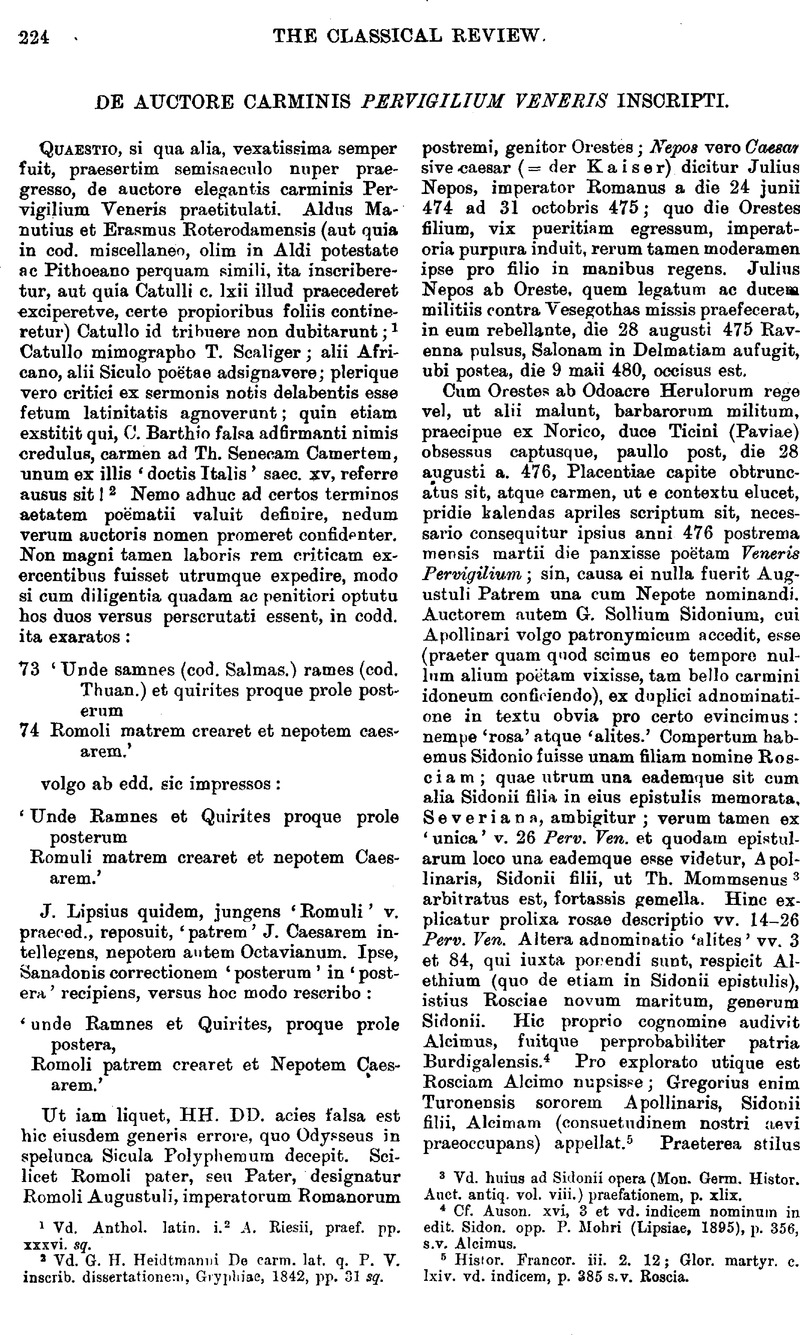No CrossRef data available.
Article contents
De Auctore Carminis Pervigilium Veneris Inscripti
Published online by Cambridge University Press: 27 October 2009
Abstract

- Type
- Review Article
- Information
- Copyright
- Copyright © The Classical Association 1905
References
page 224 note 1 Vd. Anthol. latin, i.2 A. Riesii, praef. pp. xxxvi. sq.
page 224 note 2 Vd. G. H. Heidtmanni De carm. lat. q. P. V. inscrib. dissertationem, Gryphiae, 1842, pp. 31 sq.
page 224 note 3 Vd. huius ad Sidonii opera (Mou. Germ. Histor. Anct. antiq. vol. viii.) praefationem, p. xlix.
page 224 note 4 Cf. Auson. xvi, 3 et vd. indicem nominum in edit. Sidon. opp. P. Mohri (Lipsiae, 1895), p. 356, s.v. Alcimus.
page 224 note 5 Histor. Francor. iii. 2. 12; Glor. martyr, c. lxiv. vd. indicem, p. 385 s.v. Roscia.
page 225 note 1 Judicium de Sidonii scribendi genere severius vd. in egregio S. Dillii opere ‘Rom. Society in the last cent. of the west. emp.’2 Londin. 1899, pp. 448 sq.
page 225 note 2 Duplex nomen mulieres quoque, inde a Julia Agrippina, insignivisse non pauca testantur exempla e.c. ex Historia Augusta. Itaque Ausonii sorores.
page 225 note 3 Cf. carmen cum epp. ii. 2, 3 sqq. ubi Avitacum describitur. Pro Hybla vv. 51 et 52 reponendum est Villa; pro Hyblaeis v. 49 villicis vel villar'bus cum vocalis syncope.
page 225 note 4 Cf. epp. viii. 7, 4.
page 225 note 5 Cf. epp. v. 16, 2.
page 225 note 6 Epp. viii. 3, 1.
page 225 note 7 ‘Down to the end of the century [and after, nam Innodius episcopus Ticinensis eo non abstinuit 1], marriages in Christian families were still celebrated by an epithalamium in the old pagan manner. Sidonius has left two of these pieces, in which his taste is probably seen at his worst.’ S. Dill. o. c. p. 446.


